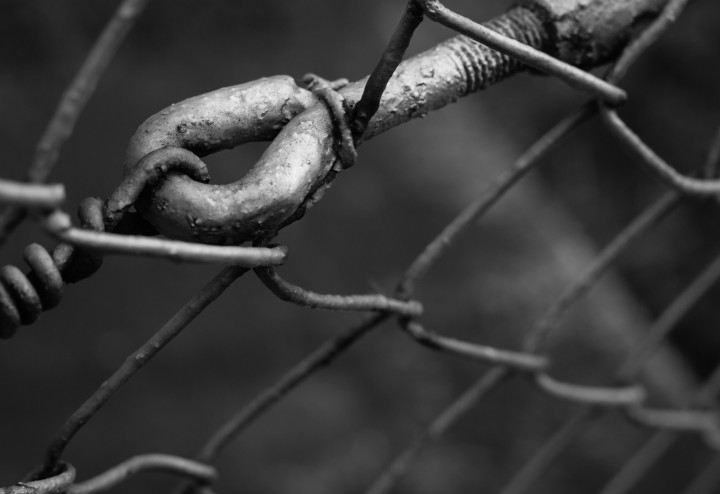Every 68 seconds, an American is sexually assaulted.
Sexual assault and alcohol or drugs often go hand-in-hand. The same is true for sexual abuse and addiction. Substances can play a role both before and after unwanted sexual activity. People involved in sexual violence or sexual aggression are often under the influence of drugs or alcohol. In the aftermath of sexual abuse or sexual assault, alcohol and drugs can be a way for victims to numb the emotional pain, shame, guilt, and fear they feel.
Sexual Assault and Alcohol or Drugs
According to the United States Department of Justice, sexual assault is “any type of sexual contact or behavior that occurs without the explicit consent of the recipient.” Sexual assault can be anything that forces unwanted sexual activity, which includes physical, verbal, or visual acts.
In the last couple of decades, the media has shown a spotlight on sexual assault and alcohol’s role on college campuses. Around half of college sexual assaults involve alcohol or binge drinking. “Date rape drugs” like Rohypnol, GHB, and Ketamine are prevalent in sexual assault as well with over 50% of college women and 40% of college men saying their drinks were spiked by another person.
College campuses aren’t the only place where sexual assault and alcohol are issues though. According to RAINN (Rape, Abuse & Incest National Network), an American is sexually assaulted every 68 seconds. Drugs or alcohol are a part of these incidents all too often. The influence of alcohol or drugs increases the likelihood of being a sexual assault perpetrator or victim. Furthermore, experiencing sexual assault is a significant risk factor for future substance abuse and addiction.
There are several ways that sexual assault and alcohol and drugs are linked:
- Drug-facilitated sexual assault – Drugs and alcohol are intentionally used to cloud an individual’s judgement about sex, prevent them from remembering what happened, or inhibit their ability to resist sex.
- Substance use by the perpetrator – The individual assaulting another individual is using substances. Some research shows that sexual assault perpetrators are under the effects of alcohol or drugs in 60-65% of the cases.
- Substance use by the victim – The individual on the receiving end of sexual assault is using substances. One study found that around 42% of sexual assault victims were using drugs or alcohol at the time of the incident.
- Substance use by the victim as a coping mechanism – Drugs or alcohol become a way to numb feelings associated with the assault. Much research points to the high rate that sexual assault victims develop substance abuse to cope with trauma from the incident(s).
In any form, sexual assault is a highly traumatic event, and it’s common to develop post-traumatic stress disorder (PTSD) afterwards. Sexual assault can have long-lasting psychological, emotional, and physical effects that cause great difficulty in everyday life. Sexual trauma affects survivors differently, but some common outcomes include:
- Withdrawing from close relationships.
- Developing intimacy disorders.
- Turning to substance abuse, eating disorders, or high-risk sexual behaviors.
- Developing depression, anxiety, or other mental health disorders.
Some therapies shown to be effective in treating sexual assault and alcohol or drug abuse include:
- Psychodynamic psychotherapy
- Trauma-focused cognitive behavioral therapy (TF-CBT)
- Eye movement desensitization and reprocessing therapy (EMDR)
- Seeking Safety
Sexual Abuse and Addiction
It’s estimated that one in 13 males and one in four females are sexually abused during childhood. Being sexually abused is a childhood trauma that puts people at increased risk for substance use disorders.
Sexual abuse is considered an adverse childhood experience (ACE). The more ACEs, the greater vulnerability to alcohol addiction or drug addiction. Some research has found that sexual abuse as an ACE is one of the strongest predictors of future substance abuse.
People who experience child abuse of any kind, may drink alcohol or use drugs as coping mechanisms. This can be a way to self-medicate the emotions and difficulties that stem from an ACE.
Common emotions and issues tied to sexual abuse and addiction include:
- Guilt and shame
- Anger
- Depression
- Anxiety
- Distrust
- Low self-worth
- Hopelessness
- Sleeping problems
- Disordered eating
- Intimacy issues
Using substances to mask these issues can quickly lead to drug or alcohol dependence.
Getting Help for Sexual Trauma and Addiction
Addressing the emotions and fears stemming from sexual abuse or sexual assault is difficult but can also be relieving and empowering. To overcome the unhealthy coping skills that you’ve used as survival tools, you must explore the underlying issues that are contributing to substance abuse. You also need to develop healthy ways to cope with triggers and challenges. We can help you with this.
Footprints to Recovery provides a safe, accepting space where you can feel comfortable sharing about difficult topics. You’ll develop a trusting relationship with an individual counselor and attend group therapy with peers who are addressing emotional wounds as well. Trauma-focused therapies like EMDR can help you recover from trauma without having to “relive” difficult experiences. A blend of traditional therapies and experiential approaches can ensure you’re addressing the mental, physical, and spiritual deficits from sexual abuse and addiction.
Our addiction treatment programs offer several levels of care:
- Medical detox
- Residential treatment programs
- Partial hospitalization program
- Intensive outpatient programs
- Outpatient programs
- Sober-living residences
We tailor your treatment plan to your background, preferences, and needs so your time with us is relevant and addresses any co-occurring disorders or other challenges. It’s hard to see beyond your struggles right now, but there is hope, and you can recover. Contact us today to learn how we can help.
References
- https://www.dea.gov/sites/default/files/2018-07/DFSA_0.PDF
- https://www.ncbi.nlm.nih.gov/pmc/articles/PMC3837347/
- https://www.ncbi.nlm.nih.gov/pmc/articles/PMC6290351/
- https://www.ncbi.nlm.nih.gov/pmc/articles/PMC3622163/
- https://www.ncbi.nlm.nih.gov/pmc/articles/PMC7239557/
- https://www.drugabuse.gov/sites/default/files/sexualassault.pdf
- https://archives.drugabuse.gov/blog/post/what-are-date-rape-drugs-and-how-do-you-avoid-them
- https://www.cnn.com/2019/10/18/us/date-rape-drug-coasters-new-mexico-trnd
- https://www.sciencedirect.com/science/article/pii/S2352853220301085
- https://www.cdc.gov/violenceprevention/childsexualabuse/fastfact.html






